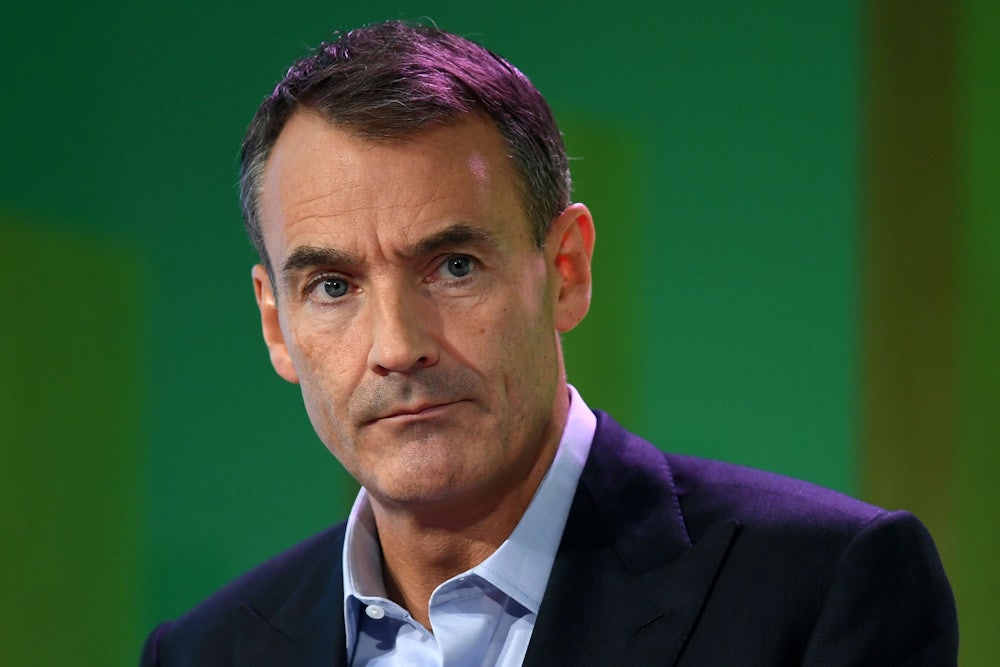In early April, the state of Washington managed to do what once seemed impossible: successfully pass a bill establishing carbon pricing. It did so with the backing of oil giant BP, which has a lot riding on a particular piece of it: carbon offsets.
Multinational oil and gas company BP has taken pains to rebrand itself as environmentally friendly in recent years. In 2018, the company spent $13 million to block a carbon tax in Washington state, in part because the policy would have added to existing environmental rules rather than replace them.* In 2020, the company turned around to endorse a different set of bills to implement a California-style cap-and-trade system, praising the inclusion of “carbon sequestration” provisions and the potential to streamline “a complex patchwork of overlapping policies.” Senate Bill 5126—known as the Climate Commitment Act, passed in April as a reintroduction of the 2020 proposals—was drafted in part with BP’s help.
The company’s shifting P.R. strategy might not be the only reason it supported SB 5126. Last December, BP announced it had acquired a majority stake in a company called Finite Carbon, “aiming for rapid growth.” Its core business is working with landowners to parcel together tracts of forests, whose ability to suck up carbon dioxide can be sold off as carbon credits, including a third of those generated under California’s cap-and-trade system. If a polluter (say, a multinational fossil fuel company) exceeds the state-regulated cap on emissions under such a program, it can buy up credits structured by a company like Finite Carbon to “offset” its fumes through the state’s $2 billion forest carbon-offset program. If Governor Jay Inslee signs his state’s cap-and-trade package into law as expected, Washington’s prospective carbon trading market will allow its polluters to trade credits, too. And Washington as of now seems likely to link its carbon market with California’s.
If Finite Carbon’s offsets are deemed eligible by the Washington Department of Ecology, tasked with designing the standards for the new offsets, BP could theoretically play both sides of the carbon accounting ledger. As an additional complication, researchers with the think tank CarbonPlan have found that several of Finite Carbon’s carbon credit packages—including projects in Washington state—are engaged in what they call “systemic over-crediting” under the California cap-and-trade system, collecting as many as 68 percent more credits than the carbon savings the trees included in their lots actually account for. Credits are supposed to be able to prove “additionality,” meaning they have preserved carbon that might otherwise have been lost to logging or other land use practices. Nearly a third of the total offsets CarbonPlan analyzed are over-credited, with roughly $410 million worth of “ghost credits” that researchers say correspond to no additional reductions at all.
“We do not have a comment on this report,” BP America’s U.S. media relations manager, Josh Hicks, wrote to me by email when asked about CarbonPlan’s findings concerning Finite Carbon. “BP’s advocacy for SB 5126 is not related to our investment in Finite Carbon.” Asked if BP’s operations in the state would purchase credits structured by Finite Carbon, Hicks responded that “the rules and regulations of this legislation are not yet defined. We’d look at all options for meeting our obligations under Washington’s cap-and-invest program.”
I also put the question about Finite Carbon’s possible eligibility for Washington’s program to Governor Inslee’s office. “It’s still too soon to get into implementation questions,” a representative wrote in response.
It’s not as if SB 5126 is the only thing Washington is doing to limit emissions. Climate advocates in Washington have succeeded in passing a string of lower-profile legislation in the last two years to drive serious reductions in the electricity sector, transportation, and more, without this approach. The Climate Commitment Act itself goes to great lengths to limit the ability of faulty offsets to undermine the state’s emissions goals: As in California, offsets will account for just 8 percent of carbon cuts in the first phase of the program. Advocates also intend for offsets to be structured as a “bonus” on top of emissions reductions gained through more reliable compliance mechanisms, unlike in California. Air quality rules created by the bill act as a backstop for bringing down local pollution, as well, and regulators can cut off companies’ ability to use offsets for compliance should they overstep them.
“If implemented in isolation, this program should be incredibly ambitious and effective,” CarbonPlan policy director Danny Cullenward told me over Zoom, pointing in particular to the corrections it offers to California’s program.*
But there’s a bigger problem at stake than the questionable offsets that could be traded by Washington polluters, including those packaged by a firm BP controls. “My primary concern,” Cullenward said, “is that this will be read as yet another progressive state endorsing carbon offsets and asserting that they are perfectly additional, when the evidence is crystal clear that large-scale offset programs are not working.”
Demand for carbon offsets is soaring, thanks in part to a recent rash of net-zero commitments from fossil fuel producers and other corporations, whose plans rely heavily on the concept. Expanding carbon markets could be big business not just for companies like Finite Carbon but conservation organizations like the Nature Conservancy, which has enthusiastically backed SB 5126 while on an apology tour over its own dubious offset programs; in December, Bloomberg reported that the Nature Conservancy had been selling offsets backed by conservation programs already in existence—in other words, buying an offset from them wasn’t necessarily taking new emissions out of the air with new trees.
Amid a string of bad press, getting a rubber stamp on offsets is a high-stakes enterprise for interests eager to prove that they have a major role to play in the race to net-zero. “It is long past time for the climate movement to begin a conversation about special interests within pro-climate constituencies and how these interests create rent-seeking programs that operate to the detriment of the public interest,” Cullenward told me. His worry that Washington’s new law will lend legitimacy to such questionable corporate offset schemes is supported by the fact that both BP and the Nature Conservancy helped draft it. (After this article was published, Nature Conservancy spokesperson Ciaran Clayton said in an emailed statement that the organization has conditioned its support for the legislation “on using offsets in the right way, as one of many tools, and ensuring there are mechanisms designed to ensure that industries can’t just keep polluting.)
Shortly after the 2018 carbon tax initiative was defeated, Senator Reuven Carlyle sat down with representatives from BP. “I said, ‘I understand what you’re against.’ And I said, ‘What are you for?’” Carlyle introduced a precursor to the Climate Commitment Act in early 2020. “I worked closely with them early on, just as I’ve worked with [the electric utility] Puget Sound Energy and multiple other companies, environmental groups, and activists.” Drafting, Carlyle said, was an “iterative process,” and he checked in with representatives every couple of weeks. He doesn’t recall their edits being dramatic, he said. “They were a contributor. I had a functional, well-structured draft and asked for their technical comment, just as I did the Nature Conservancy.”
Since the bill’s passage, Carlyle has spoken twice with BP representatives. “They’re very pleased and very excited that the state is moving forward,” he said. “They think it’s a good model. They feel positive about it, and they’re super pleased that it’s an example of an economy-wide policy.”
Another group “helpful and intimately involved” with the drafting process, Carlyle said, was the California Air Resources Board, which oversees California’s carbon pricing program. But CARB has also seen its work called into question. In a detailed investigation released alongside the CarbonPlan report, ProPublica and MIT Technology Review reporters Lisa Song and James Temple explored how its system for awarding credits based on regional averages for carbon sequestration has made it vulnerable to gaming by offset developers, adding millions of tons of carbon to the atmosphere.
In a lengthy statement in response to these recent reports, CARB wrote that it does “not agree” with the flaws identified in its program, “and notes that the methodologies in the CARB-approved U.S. Forest Protocol were developed through a full public, regulatory process.… Credits issued to projects that meet the U.S. Forest Protocol requirements represent real, quantifiable, permanent, verifiable, enforceable, and additional reductions.”
Cullenward isn’t convinced. “We’ve identified a pretty big systemic problem,” he said, “and the reaction has not been: We’ve got to deal with this. It’s been, ‘Our process is perfect, and there’s nothing that can go wrong.”
Carlyle, asked about the CarbonPlan and ProPublica reports, equivocated. “I absolutely categorically support linking with California,” he told me, “but I want to do it in a way that leads with thoughtfulness and seriousness regarding some of those weaknesses.” I asked if he would need to see improvements in CARB’s system to support linkage. “No. I’m not going to take that next step,” he replied. Although Carlyle called the CarbonPlan and ProPublica reports “fabulously helpful,” he also said, “It’s premature to make any judgments about the standards with whether CARB’s numbers are right or whether the [CarbonPlan] analysis is right.”
Pending Inslee’s signature on the Climate Commitment Act, state regulators will have wide remit to decide on the integrity of Washington’s program and whether it links up with California’s embattled carbon market.
Washington’s SB 5126 isn’t just an endorsement of the carbon-offset model. It also represents a particular approach to passing climate legislation, in a country where climate proposals are frequently blocked.
The defeat of the state’s carbon tax initiative in November 2018, which prioritized investments in environmental justice communities, was seen by climate wonks nationally as a death knell for carbon pricing. If this approach couldn’t pass muster in Washington state, what chance did they have nationally? Days later, the Green New Deal burst into the debate with a different policy approach, for massive federal investment financed through deficit-spending. But it did resemble Washington’s carbon tax proposal in its theory of change: aligning progressive forces behind a visionary climate policy to generate enough momentum to pass a law.
Others, including those who would eventually back SB 5126, thought the carbon tax failure indicated progressive alignment wasn’t enough. A whopping $31 million of oil and gas industry spending had felled a policy that enjoyed widespread support from environmental justice groups, mainstream green groups, unions, and Democratic lawmakers. Maybe, some thought, it was time to try winning the industry over.
At a practical level, it’s possible that approach did help in getting SB 5126 passed. Representative Joe Fitzgibbon—who sponsored the House version of the carbon market bill—said BP’s support provided cover to moderate Democrats who might otherwise have opposed it in the face of unified corporate opposition.
But certain concerns tend to get lost in the shuffle when climate plans are built to help win over corporations. While mainstream environmental groups like the Nature Conservancy and Climate Solutions lined up around the Climate Commitment Act, environmental justice advocates largely opposed it. Front and Centered, a coalition of climate and environmental justice groups that backed the more justice-oriented 2018 initiative, opposed SB 5126 in favor of a bill called the STRONG Act, another carbon tax and investment plan. The STRONG Act died in Carlyle’s energy committee. Front and Centered said the SB 5126 drafting process felt rushed and didn’t respond to their feedback or concerns.
Front and Centered and its member groups have been in close touch with environmental justice organizers in California, who’ve long opposed their state’s cap-and-trade system for (among other reasons) allowing companies to continue polluting in their backyards, without snuffing out emissions at the source. “The fact that people are going to be able to offset emissions from other places and trade in allowances leads back to the same players, like the oil companies,” Rosalinda Guillen, who co-leads Front and Centered, told me.
To organizers like Guillen, BP’s support of the bill is inherently suspicious. “You have to ask that question: Why would they oppose I-1631 [the 2018 carbon tax] so intensely, and spend so much money, and yet support the Climate Commitment Act? What I believe is that this isn’t going to hurt them at all,” she said. “If they’re not opposing it, it means they’re going to be able to continue to be doing what they’re doing. They may have to pay a little more in fees.… The point is that they’re going to continue to function as they always have.”
* A previous version of this article misstated how much money BP spent to block a carbon tax in Washington state. Danny Cullenward’s title also has been corrected.




